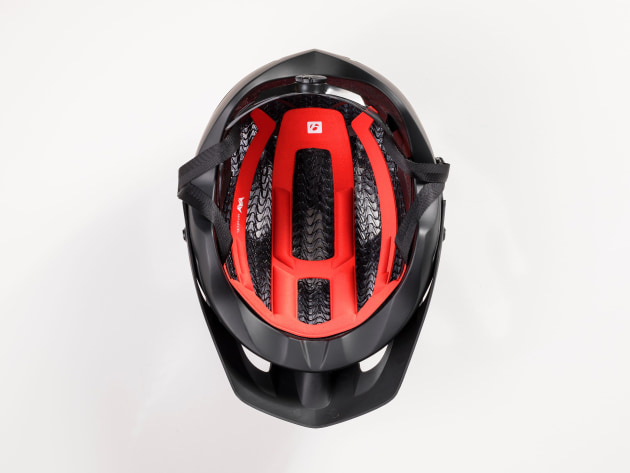Trek and Bontrager have unveiled a groundbreaking helmet technology called WaveCel, which is proven to be up to 48 times more effective than standard EPS foam at preventing concussions from common accidents, and will be available to mountain bikers in the form of the Blaze WaveCel MTB Helmet.
WaveCel is a collapsible cellular material that lines the inside of Bontrager WaveCel helmets. It was developed by orthopedic surgeon Dr. Steve Madey and biomechanical engineer Dr. Michael Bottlang, who have collaborated for the past 25 years and pioneered advances in fracture care, thoracic and pelvic trauma, and head injury prevention.
The creation of Bontrager WaveCel helmets is the result of a four-year partnership between Drs. Madey and Bottlang and Trek and Bontrager's Research & Design teams.
Unlike a standard foam helmet, which is designed to protect against direct impacts, WaveCel accounts for how most mountain-biking accidents actually happen - ungracefully, with twists, turns and angled impacts.

WaveCel absorbs energy in multiple ways. On impact, the layers of the WaveCel material move independently and flex until the cell walls crumple and then glide, actively absorbing direct and rotational energy and redirecting it away from your head.
The material flexes, crumples and glides and is remarkably effective at dispersing the energy from impact. Nearly 99 times out of 100, WaveCel can help prevent concussions from common cycling accidents.*
"We are cycling enthusiasts on a mission to help more people enjoy the benefits of biking and to do that with the most advanced protection possible,” said Tony White, lead engineer on the project. “WaveCel represents a significant leap forward for all types of riders, and we are proud that this technology is exclusively available in Bontrager helmets.”
Every model in the all-new WaveCel helmet lineup, which includes two road riding helmets and one commuter shell, received the highest marks in Virginia Tech's five-star ranking.
"For nearly a decade, we have been testing and rating helmets across industries to determine the products that will best reduce head injury risk," said Megan Bland, a doctoral student and graduate research assistant from Virginia Tech. "Helmets that receive higher ratings offer considerably more protection compared to other popular helmets on the market."
WaveCel is a major innovation in a category that has remained largely unchanged in 30 years, one that underscores Trek's commitment to making cycling safer for every rider.
“We're out to change the world by getting more people on bikes, and we're committed to making riding safer and more accessible for everyone,” said Trek President John Burke. “WaveCel is the most advanced helmet technology ever designed, and these helmets are a big step toward making riding a safer, more enjoyable experience for everyone.”
The Blaze WaveCel will retail at $349.95. Head to Trek's website for more details.
*Results based on AIS 2 Injury (BrIC) at 6.2 m/s test at 45° comparing a standard EPS Helmet and the same helmet modified with WaveCel insert as described in detail in Evaluation of a Novel Bicycle Helmet Concept in Oblique Impact Testing.





